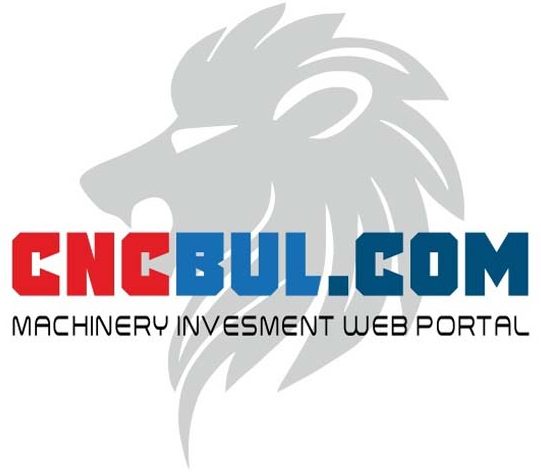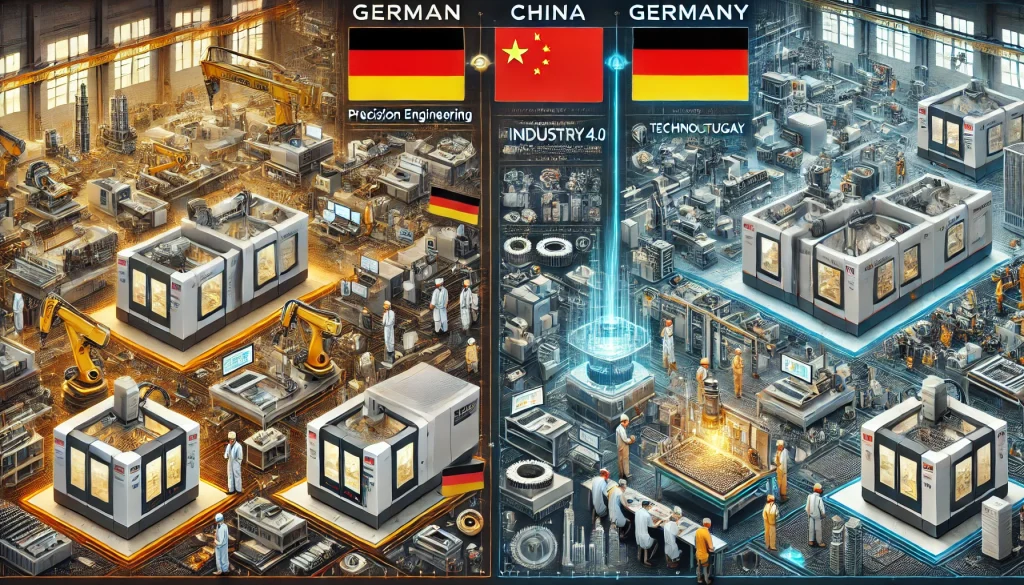What is the result when comparing the CNC Machine Tool industries in China and Germany ?
Comparative Analysis of the CNC Machine Tool Industries in China and Germany
Technological Advancements
Germany:
- Precision Engineering: Germany is renowned for its precision engineering and high-quality manufacturing standards. German CNC machine tools are characterized by their durability, precision, and advanced technological integration. Companies like DMG Mori, Gildemeister, and Hermle lead the market with innovations in multi-axis machining, automated systems, and advanced software integration.
- Research and Development (R&D): Germany invests heavily in R&D, focusing on Industry 4.0, which emphasizes the digitalization and interconnectivity of manufacturing processes. This includes the integration of IoT, AI, and machine learning to optimize CNC machining processes .
China:
- Rapid Technological Adoption: China’s CNC machine tool industry has seen rapid technological advancement, driven by significant government investment and a focus on becoming a global leader in manufacturing. Chinese companies like Shenyang Machine Tool (SMTCL) and Dalian Machine Tool Group are investing in advanced technologies, including AI and IoT.
- Automation and Digitalization: China is aggressively adopting automation and digitalization, with a focus on increasing production efficiency and reducing costs. The country is also investing in smart manufacturing technologies to compete globally .
Market Size and Growth
Germany:
- Market Characteristics: Germany’s CNC machine tool industry is characterized by its high value and focus on exporting high-quality machines. The market is mature, with steady growth driven by innovation and the demand for precision engineering.
- Export-Oriented: Germany is a major exporter of CNC machine tools, with a strong presence in Europe, Asia, and the Americas. The export-driven market benefits from Germany’s reputation for quality and reliability .
China:
- Market Scale: China has the largest CNC machine tool market in terms of volume, driven by its extensive manufacturing sector. The domestic market is vast, with a significant portion of production aimed at meeting internal demand.
- Growth Rate: The Chinese market is growing rapidly, supported by government policies that encourage technological development and modernization of the manufacturing sector. This growth is expected to continue as China aims to upgrade its industrial capabilities .
Workforce and Skills
Germany:
- Skilled Workforce: Germany’s CNC machine tool industry benefits from a highly skilled workforce, supported by robust vocational training and apprenticeship programs. The education system emphasizes technical skills and precision engineering, ensuring a steady supply of qualified technicians and engineers.
- Continuous Training: There is a strong focus on continuous training and professional development, which is essential for maintaining high standards and adapting to new technologies .
China:
- Labor Market: China’s CNC machine tool industry employs a large workforce, with increasing emphasis on technical training and skill development. However, there is a need for further improvement in the quality and specialization of the workforce to match global standards.
- Government Initiatives: The Chinese government is investing in education and training programs to enhance the skills of the workforce, with a focus on advanced manufacturing and automation technologies .
Industrial Collaboration and Innovation
Germany:
- Collaborative Ecosystem: Germany’s CNC machine tool industry benefits from a strong collaborative ecosystem that includes universities, research institutions, and industry partners. This collaboration fosters innovation and ensures that the industry stays at the forefront of technological advancements.
- Industry 4.0 Leadership: Germany is a global leader in Industry 4.0 initiatives, which integrate cyber-physical systems, IoT, and big data analytics into manufacturing processes. This leadership drives innovation and efficiency in CNC machining .
China:
- Government Support: The Chinese government plays a significant role in supporting the CNC machine tool industry through policies, subsidies, and strategic initiatives like “Made in China 2025.” These efforts aim to enhance technological capabilities and reduce reliance on foreign technology.
- Innovation Hubs: China is developing innovation hubs and industrial parks dedicated to advanced manufacturing and CNC technologies. These hubs facilitate collaboration between industry and academia, promoting innovation and technological advancement .
Conclusion
The CNC machine tool industries in China and Germany are both highly advanced but differ significantly in terms of market characteristics, technological focus, and workforce development. Germany leads in precision engineering, quality, and Industry 4.0 integration, driven by a skilled workforce and strong R&D investments. In contrast, China is rapidly advancing in automation and digitalization, supported by substantial government investment and a focus on scaling up its manufacturing capabilities. Both countries are poised to continue their leadership in the global CNC machine tool industry, each with its unique strengths and strategic approaches.


